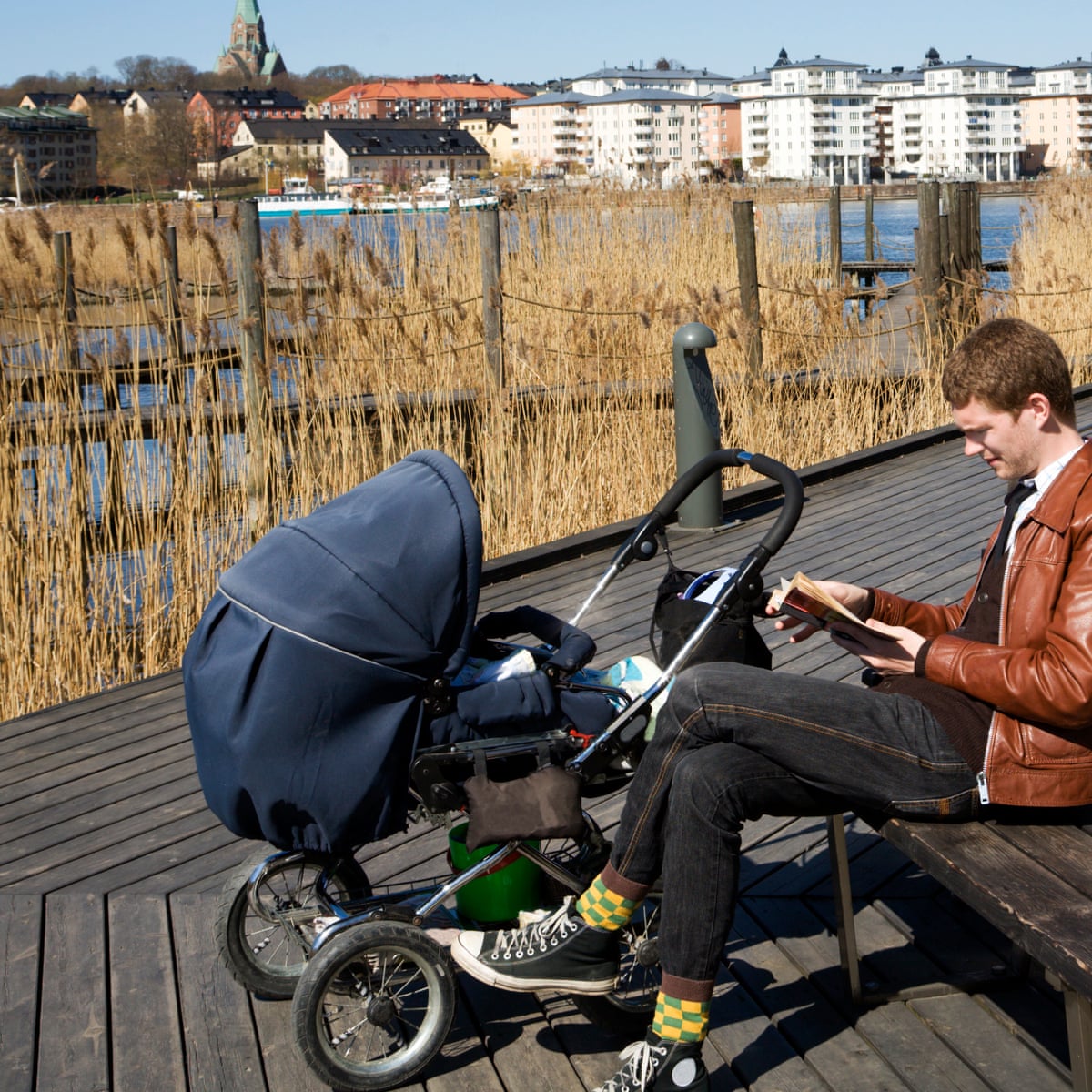
Struggling to balance work and personal life? Searching for a way to strike a work-life balance? You’re not alone – many individuals today face this challenge. Luckily, in Sweden, this balancing act is ingrained in the culture. In this article, we will explore the Swedish approach to achieve a healthier work-life balance.
Delve into the Swedish work-life balance to gain insights into how they prioritize personal well-being alongside professional success. Explore the benefits of shorter work hours, the concept of “lagom,” and the importance of time off. Discover how Swedish workplaces foster a culture of trust and autonomy, resulting in increased productivity and employee satisfaction. Whether you’re an employee or employer, there are practical lessons to be learned from Sweden’s approach to work-life balance.
Ready to regain control of your life and experience a harmonious relationship between work and leisure? Join us on this journey to uncover the secrets of the Swedish work-life balance. Get ready to transform your approach to time management and discover the key to a healthier, happier, and more productive lifestyle.
Sweden’s Approach to Achieving Work Life Balance

Sweden is known for its progressive approach to work-life balance, with policies and practices in place to prioritize both work and personal life. One important aspect is a focus on flexible working hours, allowing employees more control and adaptability. This can include part-time work, job sharing, and telecommuting.
Another factor contributing to Sweden’s work-life balance is its generous parental leave policy. Both mothers and fathers are entitled to paid leave to care for their newborn or adopted child, with flexibility in how they divide the leave. This encourages a balanced approach to family and work responsibilities.
Sweden promotes work-life balance through the concept of “fika,” a tradition of taking a break during the workday to enjoy a coffee or tea with colleagues. Fika allows individuals to relax, socialize, and maintain a healthy work-life equilibrium.
Sweden’s commitment to work-life balance is evident in its policies and cultural practices. By prioritizing flexibility, parental leave, and opportunities for relaxation, Sweden creates an environment where individuals can thrive personally and professionally.
Overview
Sweden’s work-life balance is one of the best globally. The country values quality of life and emphasizes a healthy work-life balance for its citizens, demonstrated through policies and cultural norms like generous parental leave, flexible working hours, and prioritizing leisure time.
Family-friendly policies are a key factor in Sweden’s remarkable work-life balance. Parents can take up to 480 days of paid parental leave, promoting gender equality in both child-rearing and the workplace.
Another aspect of Sweden’s work-life balance is its emphasis on flexible working hours. Many companies offer flexible schedules and remote work options. This allows employees to better manage their time, reduce long commutes, and minimize stress and time commitment.
Sweden also values leisure time and encourages regular breaks and vacations. The concept of “fika” promotes taking a break during the workday to socialize and enjoy a coffee or snack. This downtime helps reduce stress and increase productivity.
Overall, Sweden’s work-life balance is rooted in the belief that a fulfilling personal life is essential for well-being and productivity. This is achieved through family-friendly policies, flexible working hours, and a focus on leisure time, making Sweden a leader in promoting work-life balance.
Sweden offers up to 480 days of paid parental leave and the option to work remotely. This supports gender equality and reduces stress and time commitment. Regular breaks and vacations are encouraged, as well as a practice known as “fika,” which promotes a healthy work-life balance.
Key Features or Points
In Sweden, work-life balance is highly valued and actively promoted. Swedes prioritize their personal lives and well-being alongside their professional commitments.
A key aspect of work-life balance in Sweden is the focus on flexible working hours. Many companies offer flexible schedules to employees, allowing them to meet personal obligations, such as caring for their family or pursuing hobbies. This flexibility helps maintain a healthy work-life balance and boosts productivity and satisfaction.
Sweden’s generous parental leave policies ensure that both parents can spend quality time with their children. This not only supports family well-being, but also promotes workplace gender equality.
Swedes also prioritize regular exercise and outdoor activities, supported by the country’s natural beauty and infrastructure. Employers often provide recreational opportunities during work hours, further promoting work-life balance.
Swedish companies emphasize work-life balance by encouraging breaks and vacations. It’s common for Swedes to take long summer vacations to recharge and spend time with loved ones. This reduces stress, prevents burnout, and promotes productivity and engagement in work.
Work-life balance is a key aspect of Swedish culture, supported by various policies and practices. Prioritizing personal well-being and family life leads to fulfilling and balanced lives for Swedes, resulting in happier, healthier, and more productive individuals.
Practical Tips or Strategies
Achieving a better work-life balance in Sweden requires careful attention to certain strategies:
1. Prioritize self-care: Make time for activities that relax and energize you, like exercise, meditation, or nature walks. Remember that taking care of yourself is crucial for productivity and a healthy work-life balance.
2. Set boundaries: Clearly define your work hours and avoid checking work emails or taking work calls outside of them. Communicate your availability to your colleagues and managers so they understand when you’re accessible and when you’re not. This will help separate your work life from your personal life and minimize burnout risk.
3. Delegate and ask for help: Delegate tasks and ask for help when needed. Trust your colleagues to handle responsibilities and share the workload. Delegating tasks saves time and allows you to focus on important aspects of your job, achieving a better work-life balance.
4. Take advantage of flexible work arrangements: Many companies in Sweden offer remote work or flexible hours. Discuss these options with your employer to adapt your schedule to suit your personal needs and responsibilities. Flexible work arrangements align with your lifestyle and help achieve a better work-life balance.
5. Plan and prioritize: Plan your work and personal life in advance to avoid last-minute stress. Set achievable goals and prioritize tasks based on importance and deadlines. Break down your work into manageable parts and create a schedule to stay organized and have enough time for work and personal activities.
Implementing these tips can improve work-life balance in Sweden and lead to a healthier and more fulfilling lifestyle.
Personal Perspective: Finding Work-Life Balance in Sweden
Throughout this blog article, you have explored work-life balance in Sweden and the lessons it offers the world. Now, let’s summarize the key points learned and consider how they apply to your life.
Sweden prioritizes the well-being of its citizens by promoting work-life balance. With flexible hours, parental leave, and an emphasis on leisure time, the country demonstrates that achieving professional success and personal fulfillment is possible.
One crucial lesson we can learn from Sweden is the importance of setting boundaries. Clear limits between work and personal life allow both aspects to thrive without encroaching on each other. This requires effective time management and prioritization, but the benefits are worth it. Another aspect of work-life balance in Sweden is the idea of equality. Gender equality is deeply ingrained in Swedish culture and also applies to the workplace. By promoting equal opportunities and supporting work-life balance, Sweden has created an environment where everyone can thrive, regardless of gender.
Now, it’s time for self-reflection. How can you apply these insights to your own life or situation? Start by reevaluating your priorities and finding ways to balance your work and personal life. Have a conversation with your employer about flexible work arrangements or explore different career options that align with your values. Achieving work-life balance is a personal journey that requires self-awareness, experimentation, and a willingness to make changes. With inspiration from Sweden’s approach, you can create a harmonious and fulfilling life.
Sweden’s work-life balance teaches valuable lessons. By setting boundaries, promoting equality, and prioritizing personal well-being, we can find a better balance between work and life. Apply these insights to your own life and start your journey towards a more fulfilling work-life balance today.
